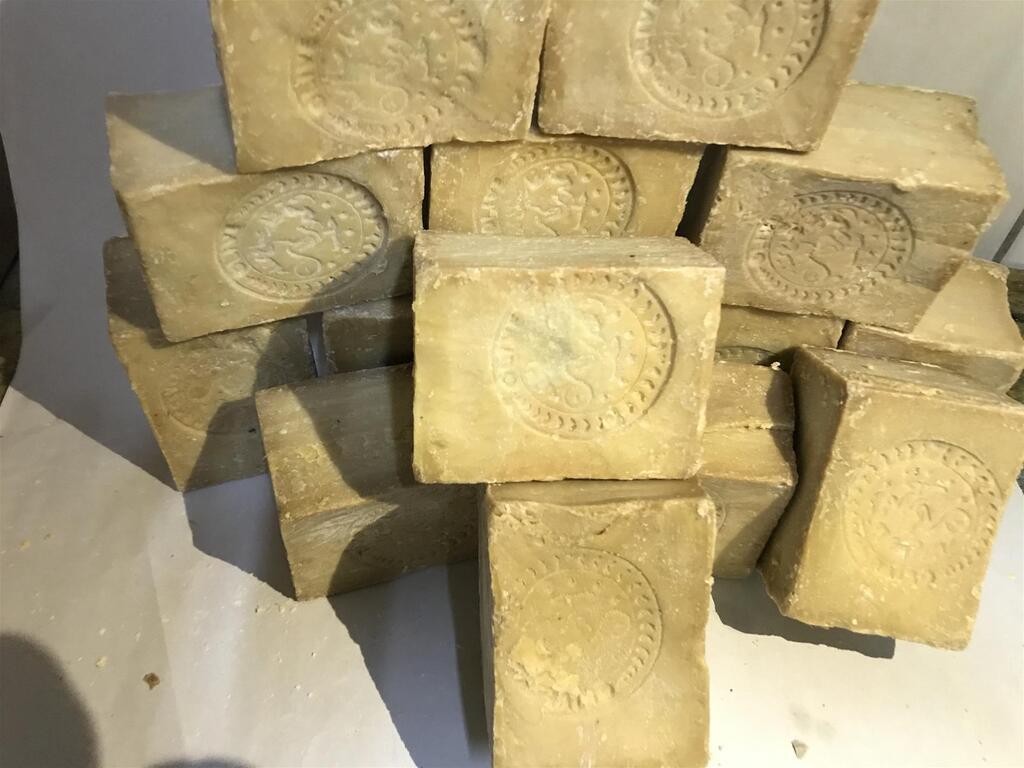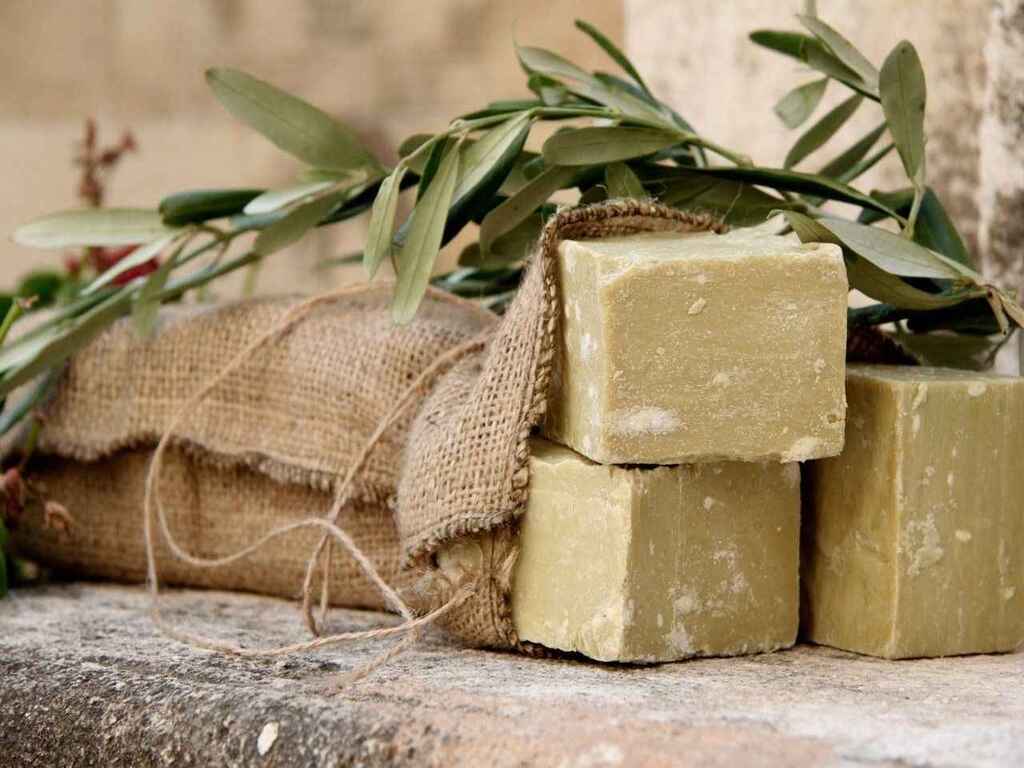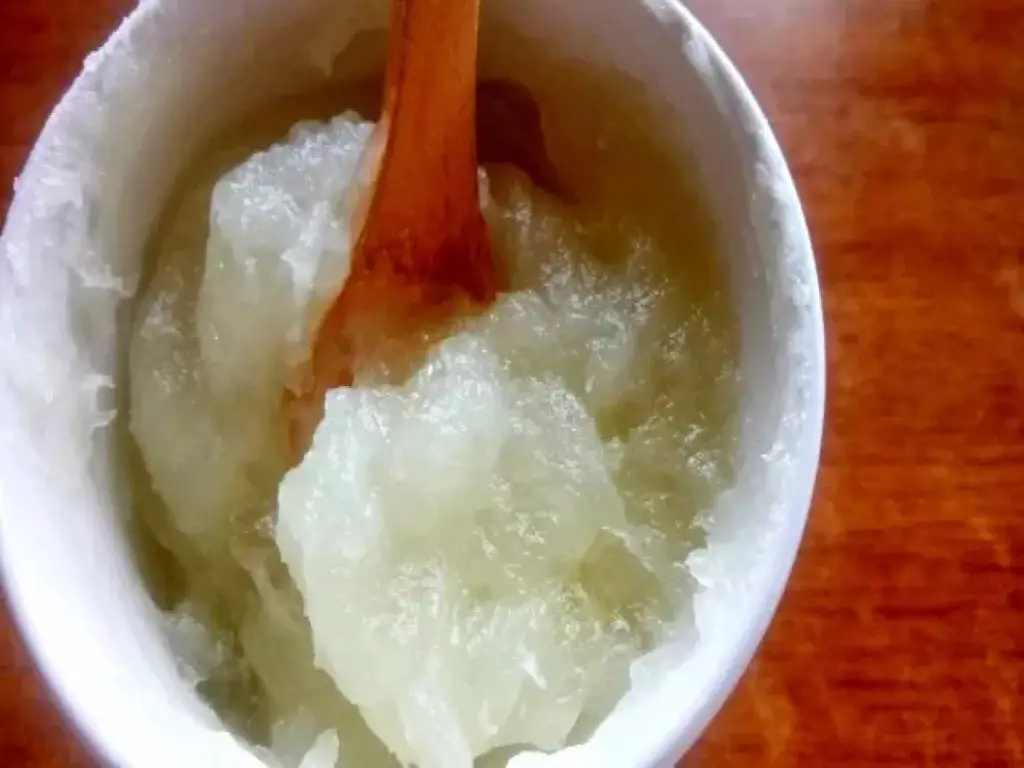Aleppo soap, considered the ancestor of all soaps, is still a top-rated product today. This soap, also known as Ghar soap, has its roots in the distant past when it started to be produced by Syrian artisans of the city of aleppo thousands of years ago.
Unfortunately, this soap factories in Syria have shrunk considerably nowadays. However, this soap continues to be produced worldwide and, in some cases, according to the old traditional methods.
What is aleppo soap?
This soap is a solid soap that originated in Syria, in the city of aleppo, from which the product is named. It is a 100% natural soap without synthetic ingredients, additives, or perfume. Otherwise, we wouldn’t be able to talk about natural this soap.

Natural aleppo soap only produce by saponification of olive oil with a strong base. As mentioned above, the manufacturers finally add a variable percentage of laurel oil at the end of the reaction. These two valuable ingredients give this soap a unique product suitable for different uses. The higher the rate of laurel oil contained, the more valuable the resulting aleppo soap.
How to make aleppo soap? (Traditional soap production method)
The traditional method of making aleppo soap is a very ancient craft method thought to be more than three thousand years old. The first stage of the conventional production of this soap consists of harvesting the olive and laurel fruits, from which you will obtain the essential oils for soap production. Usually, this harvest takes place between August and October.
Before extracting the oil, you should soak the laurel berries in boiling water to separate the pulp from the stone. At the end of this separation, only the pulp will be collected and then squeezed. Olives, however, don’t require significant preparations before pressing.
After acquiring the oils (usually in November), the producers start the actual production of aleppo soap. We will briefly show the main points of traditional products below:
- Olive oil is placed in an underground stone cauldron, where it is heated using a fire set under the pot.
- A mixture of water and caustic is added, continuing to heat to allow the hot saponification reaction.
- It lasts for a few days until a homogeneous mixture (soap paste) with a very dense consistency.
- When this stage reaches, the heating stops, and the mixture is allowed to cool slightly.
- According to the final product obtained during this cooling, laurel oil is added at rates ranging between 10% and 70%. The bay leaf oil added should mix perfectly with the rest of the soap paste.
- Then, the producer transfers the laurel oil and soap paste to special tanks where it will solidify. At this point, before the mixture hardens completely, soap makers will have to soften the surface of the soap paste to make it smooth and homogeneous.
- The soap obtained after solidification is cut by hand into square or rectangular-shaped blocks. Thus, aleppo soap bars can stamp with the trademark of the master who produced them.
- Finally, aleppo soap blocks are placed on a unique wooden scaffold where they will dry for not less than 9-12 months.
- After this period, aleppo soap becomes ready for use and sale.
What are the properties of aleppo soap?
- This soap looks like a stick with a strict consistency, yellow-brown outside and green inside. This characteristic color is due to the drying process.
- This essential soap is green before it dries due to its oil and bay leaf oil content. However, during drying, the surface of the soap oxidizes, causing the classic brown color to form.
- The scent of this soap is delicate and characteristic and reminiscent of the scent of olive oil, but above all, the smell of laurel oil, which many attributes to its ability to relax the mind and body.

- Like all soaps produced by the saponification reaction, this soap has a basic pH. Despite this, many believe this soap is among the most delicate solid soaps made by the saponification reaction.
- In addition to its classic cleansing properties, this product has antibacterial, purifying, and anti-inflammatory properties. These activities must originate from the laurel oil used to enrich the aleppo soap formulation.
- In this context, we remind you that the higher the percentage of laurel oil in general, the higher the value of the soap. However, it should note that you may not well tolerate high concentrations of laurel oil on particularly sensitive or dry skin. For this reason, people with sensitive skin should prefer aleppo soap, which contains not very high concentrations (10-12%) of laurel oil.
Why is Aleppo soap used?
We have to consider this soap to be a multi-purpose product because besides cleansing the skin – you can also use it for:
- Cleanse the hair instead of the conventional shampoo (in detail, aleppo soap seems especially effective in fighting dandruff. However, it also dries the hair if used too often. Therefore, you should use it carefully.
- Cleanse oily, impure, and acne-prone skin. The purifying, antibacterial, and anti-inflammatory properties of aleppo soap seem to improve the condition of these skin types without irritating or overly attacking them. Of course, you should avoid eye contact in all cases.
- Hand wash your laundry.
- Perfume cabinets and drawers. Also, thanks to bay leaf oil, aleppo soap can be used in the wardrobe as a natural remedy against moths.
- Finally, you can also use this soap to create a foam to be used both during beard shaving and epilation.
When should aleppo soap not be used?
Among the uses that it would be better to avoid, we recall its use for intimate cleansing. This soap can actually – inevitably due to its basic pH – exert a very aggressive cleansing action for this sensitive area of the body.
Of course, you should also avoid aleppo soap if you have a known allergy to its ingredients.
Is aleppo soap good for the face?
Certainty this soap is suitable for the face. However, when using this soap, try to use it at intervals. Otherwise, it may irritate your face.
What is aleppo soap?
This vital soap is a natural soap based in Syria. Nowadays, everyone can produce this soap.
How to use aleppo soap?
You should use this soap carefully. This soap, especially for the face, can be irritating.
Is aleppo soap good?
This essential soap is natural and effective. Many people have been using it for many years.
Is aleppo soap good for hair?
This soap for hair works very well. However, it would be best if you used this soap intermittently.
What does aleppo soap smell like?
This soap is famous for its scent of laurel and olive oil.


